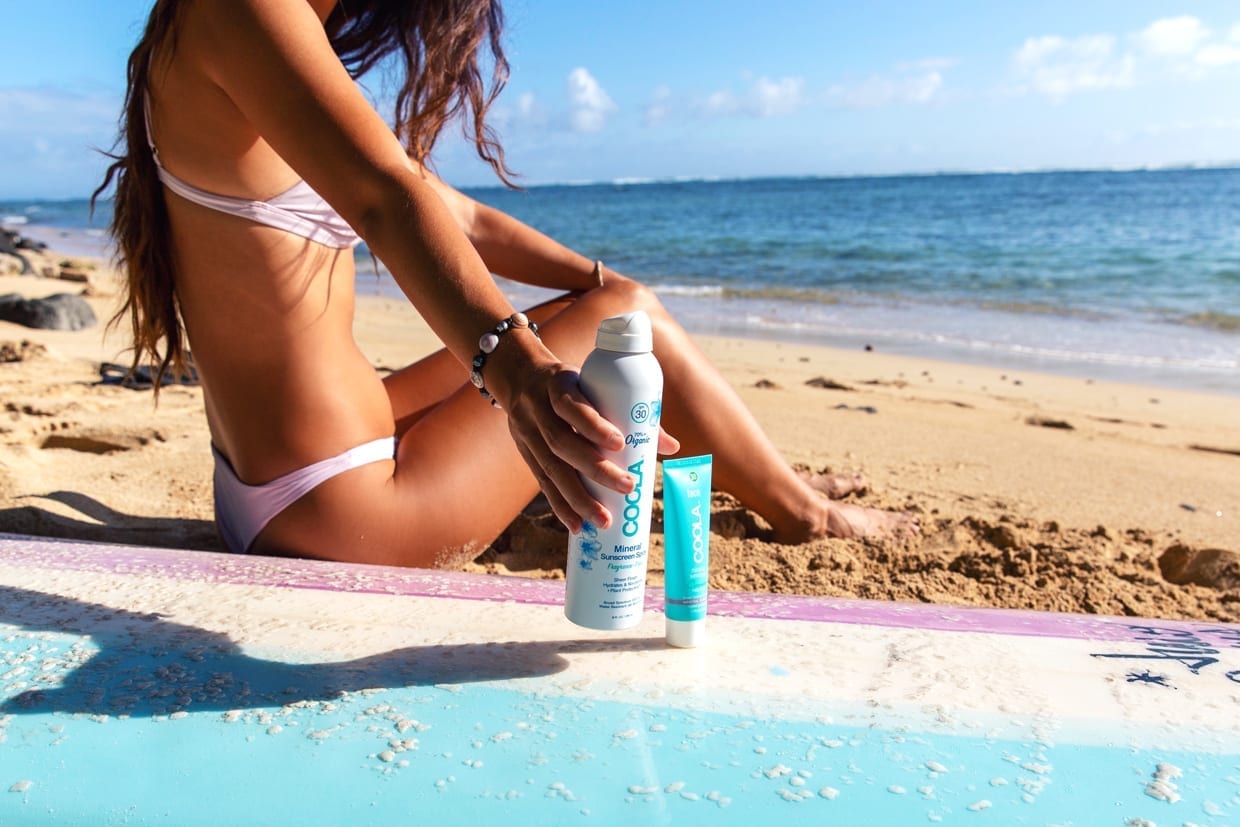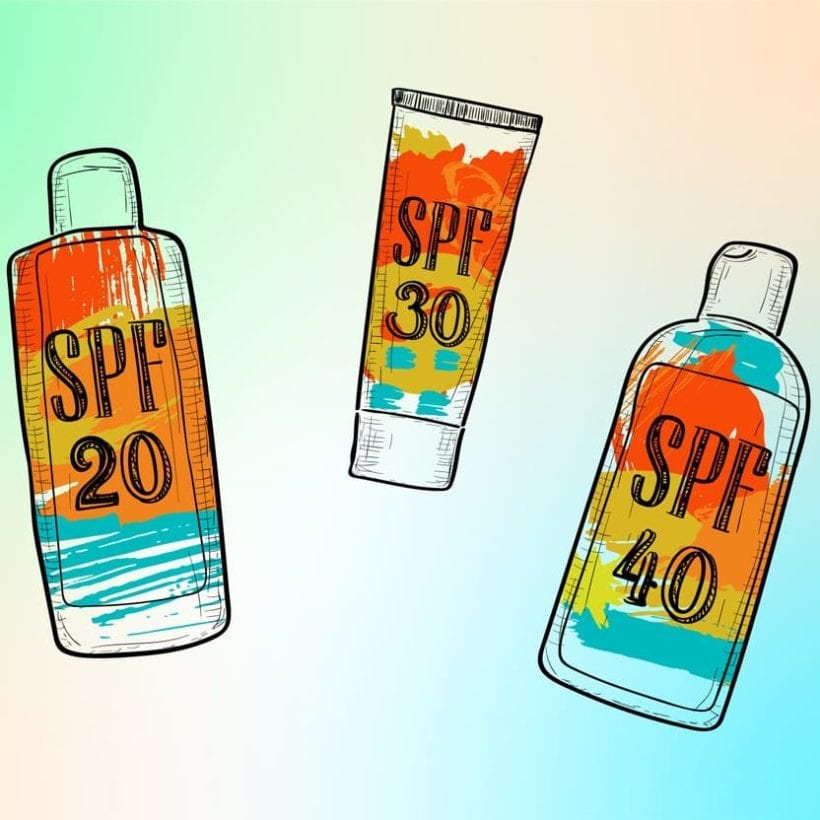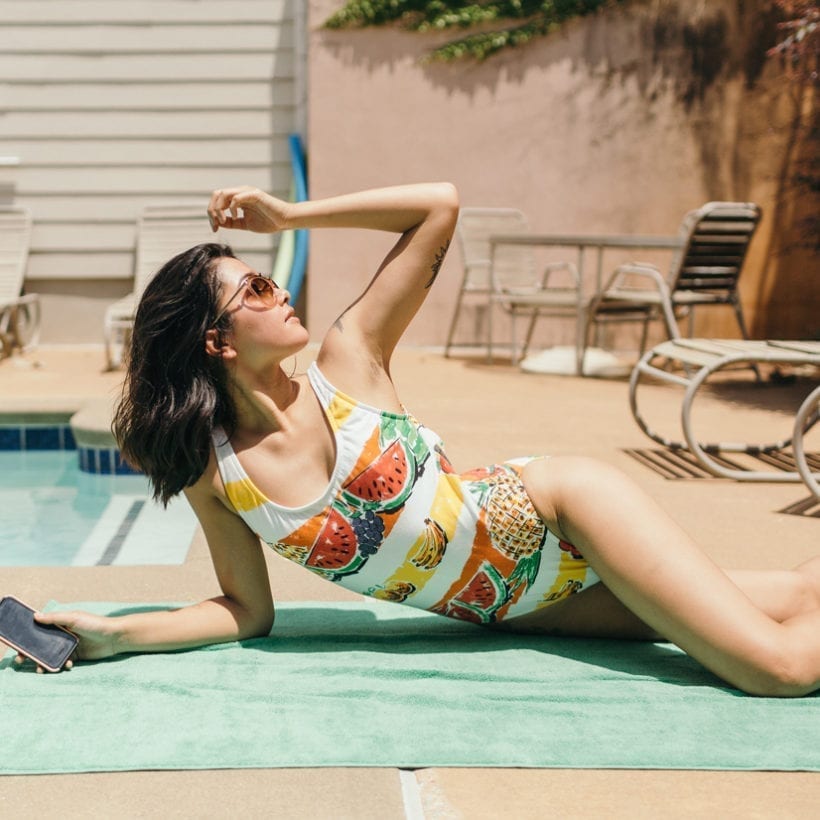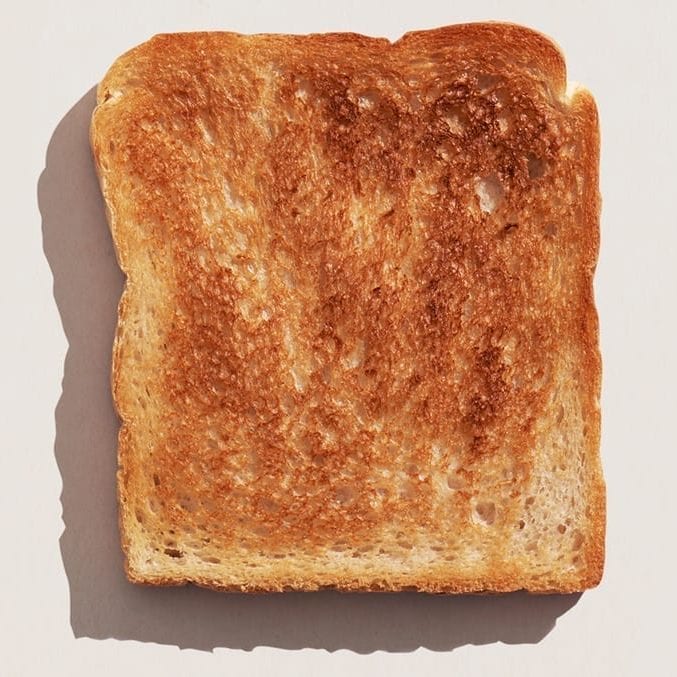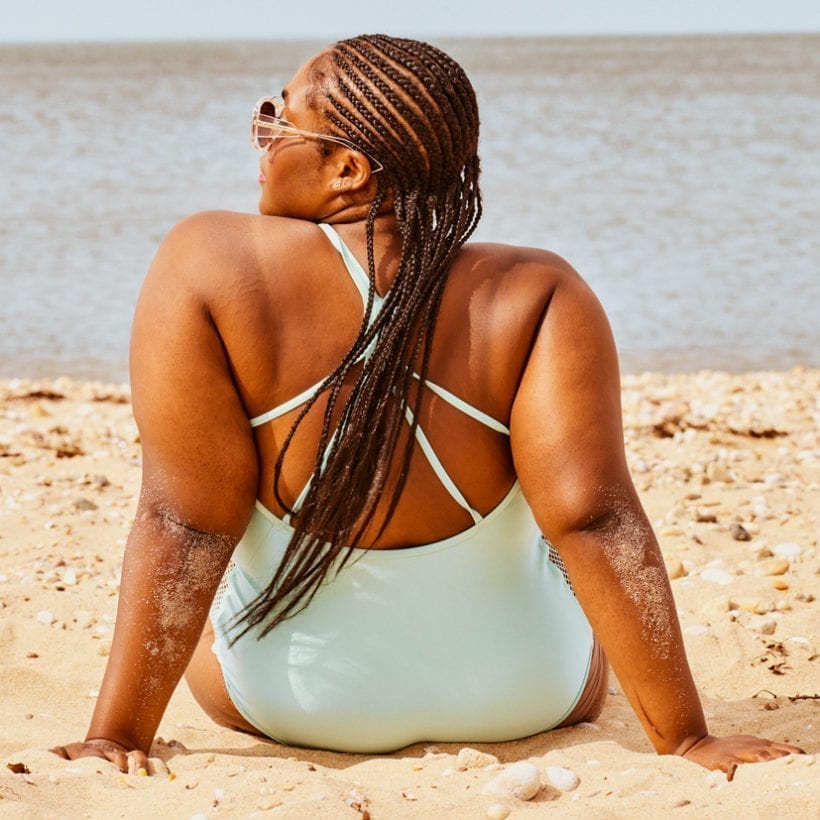After both of his parents were diagnosed with melanoma, Chris Birchby became more conscious of his own sun habits — and those of others. So in 2007, he launched COOLA, a sun care brand dedicated to providing sun protection through environmentally friendly, organic and healthy ingredients.
COOLA was the first brand to infuse 70 percent certified organic ingredients into classic sunscreens, which is an incredibly challenging feat when formulating for aesthetics and performance — organic sunscreens can be greasy or leave a white cast.
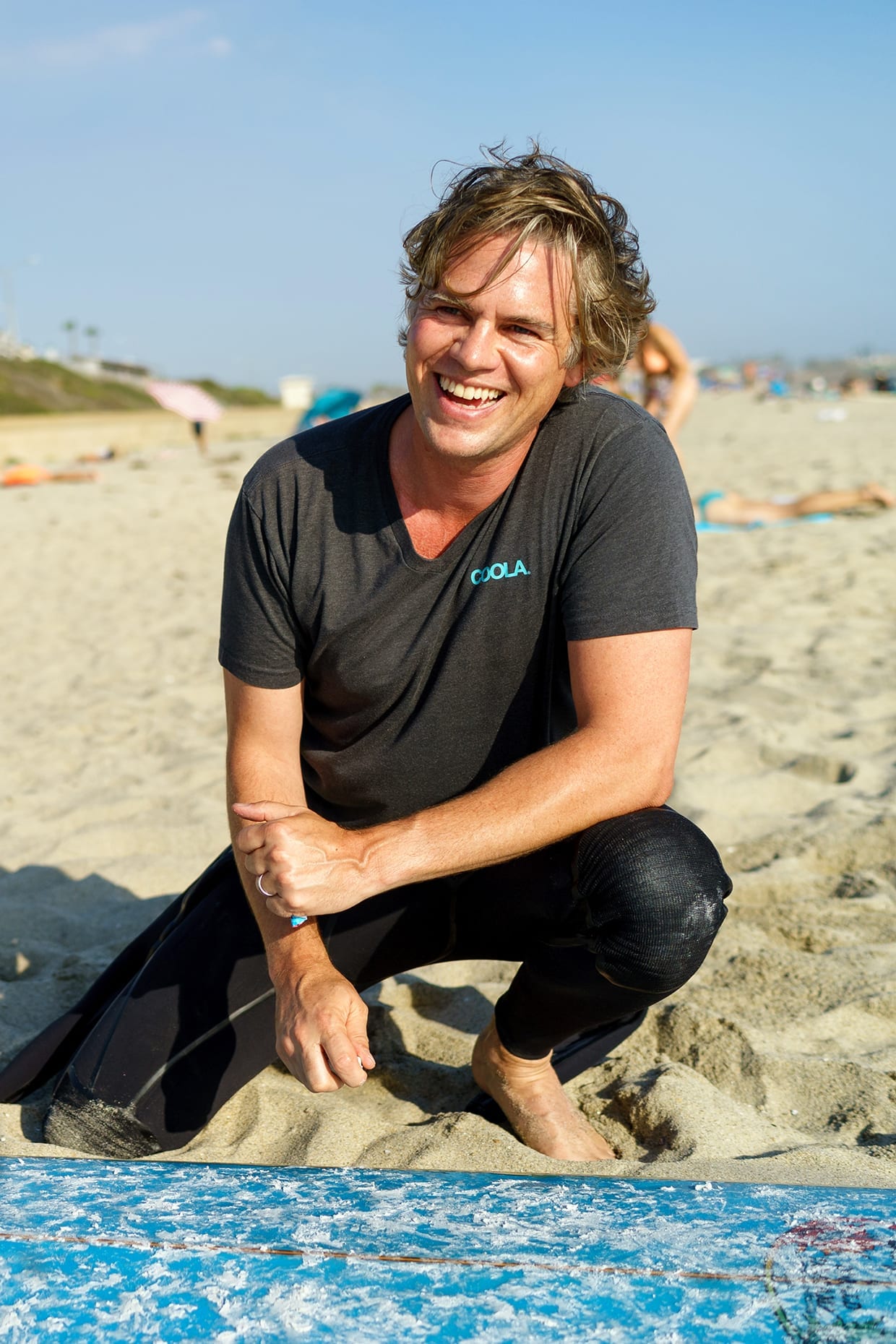
“If we wouldn’t want to put it on ourselves and our children, it won’t make it into our products,” he says. So, COOLA makes it a point to weed out potentially harmful ingredients like oxybenzone, parabens, petroleum and phthalates, and to find an oxybenzone-free sunscreen. And while we love anti-aging ingredients like retinol, sunscreen is the one product that helps mitigate the visual signs of aging from the sun. A ten-step skincare routine means nothing if built upon a weak, sunscreen-less foundation. So, we spoke to Birchby for more insight on the miracle product.
Pay attention to the amount of SPF you are using
“All sunscreens need to undergo an FDA [Food and Drug Administration] mandated the broad-spectrum test in addition to SPF testing. Products that have passed this test will have a label claim of ‘Broad Spectrum’ before their SPF value. While the FDA recommends at least an SPF 15 or higher, it really depends on a number of factors, which can include the UV intensity on a given day, the length of exposure, or even an individual’s skin type. Many dermatologists are now recommending at least an SPF 30 or higher. At COOLA, given our commitment to healthy skin protection, we have decided to formulate only at SPF 30 and higher.”
Sunscreen alone is not enough to prevent blue light damage
“Blue light (also known as high energy visible light, or HEV) is the strong light that emits from the screens on cell-phones, computers, tablets and TVs, as well as from fluorescent and LED lighting. The sun also emits blue light, so you’re exposed to it when you’re outside, too. It’s everywhere. Research indicates that blue light not only may have similar effects that UVA has, but can reach deeper into our skin than UVA and UVB rays, passing through both the epidermal and dermal layers to reach the subcutaneous tissues — and perhaps even deeper. COOLA has pioneered multifunctional formulations with cutting-edge, scientifically proven ingredients to fight blue light damage.”
Use sunscreen on your scalp
“Scalp protection is a newer field with very few products in the market. But skin cancer on your scalp is a real concern, and we’re seeing a lot of dermatologists teaming up with hairstylists to help with early detection. Mineral sunscreens are difficult to formulate to adhere to scalp and hair, while chemical sunscreen actives are suspended in oils that can typically weigh hair down. We’ve developed a formula that works to protect the scalp while helping to keep hair healthy and moisturized.”
Patch test your sunscreen
“It’s very important when trying a new sun care product — or any new skincare product for that matter — to do some small patch tests on your skin [the underside of your arm] to screen for an adverse reaction [a rash, swelling or hives]. You never know what minor ingredient, plant-based or not, your skin might be allergic too.”
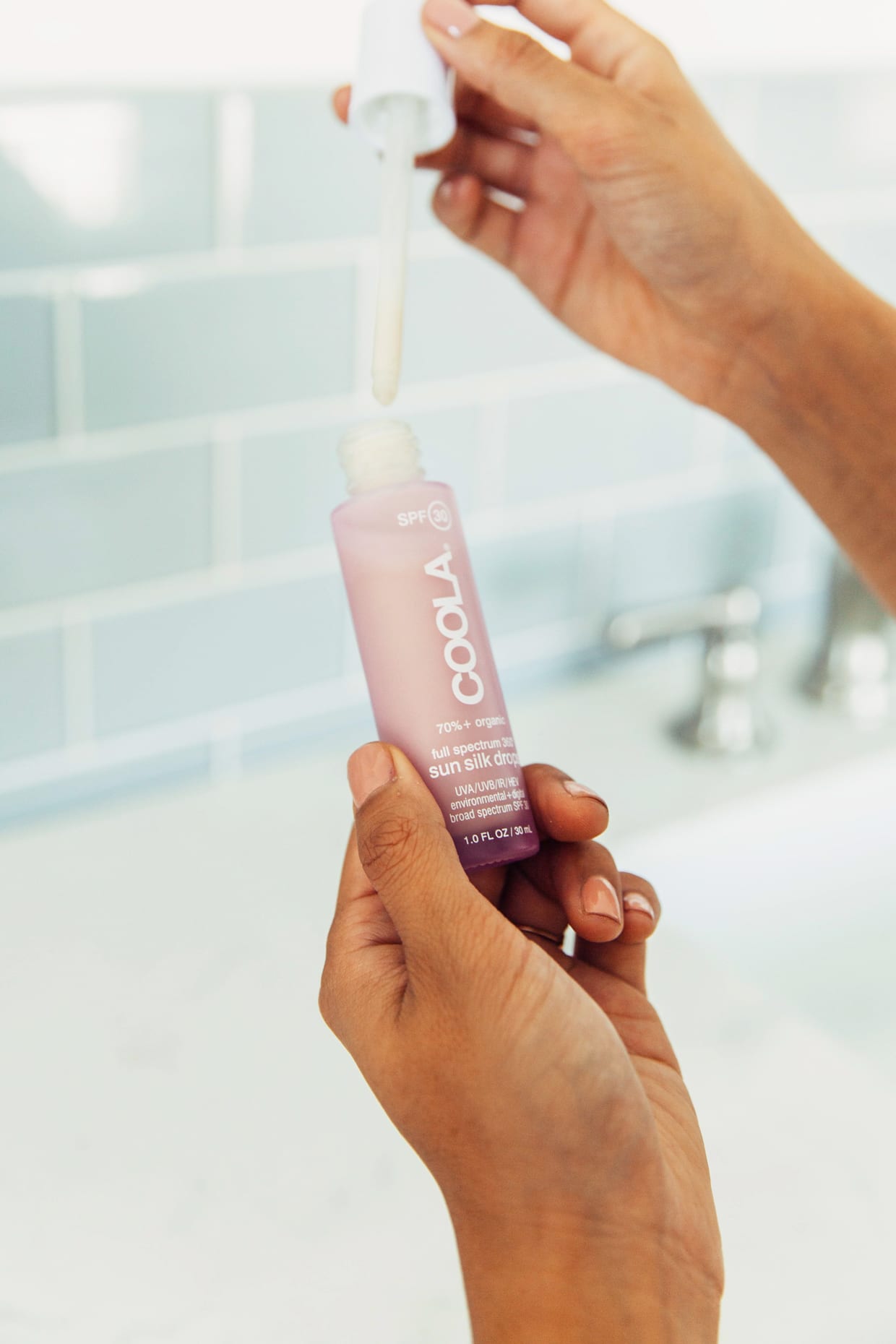
Be careful about using sunscreen on your eyelids
“Once you find the right sunscreen, we advise caution when applying around your eyes. If you must get very close to your eyes, we recommend a water-resistant formula to avoid running into your eyes, and most likely a mineral one.”
Babies should wear sunscreen, too
“Since babies do have more delicate skin, we do recommend gentler formulations specially designed for more sensitive skin.”
Use sunscreen in the office, car and during wintertime
“We strongly recommend sunscreen use year-round. UV rays can pass through glass. And despite the fact that you might not find yourself in direct sunlight, reflected sunlight — in locations such as both cars and offices will cause UVA damage as well. Additionally, clouds don’t prevent sun damage. The sun doesn’t take a day off — your sunscreen shouldn’t either!”
We only recommend products we have independently researched, tested, and loved. If you purchase a product found through our links, Sunday Edit may earn an affiliate commission.
